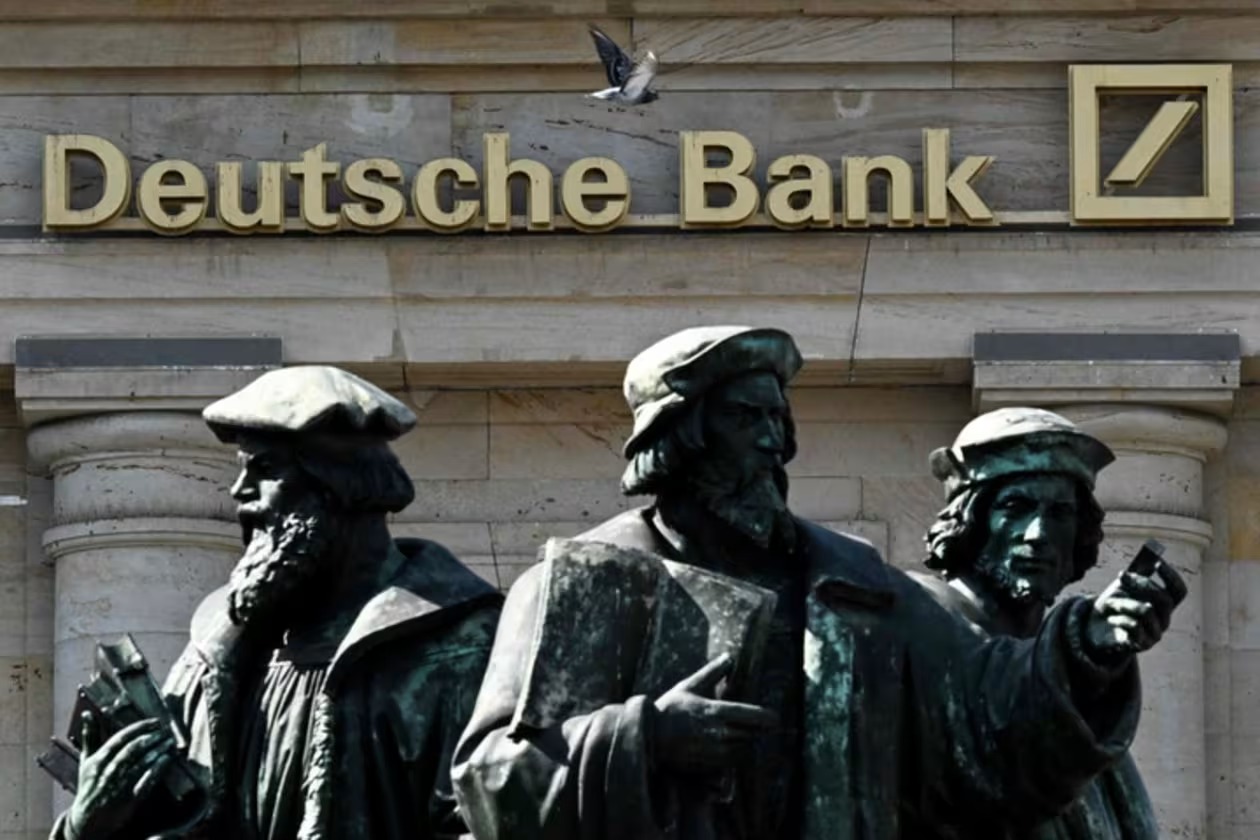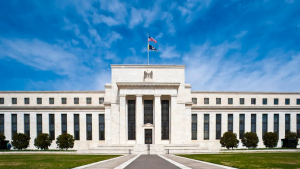Deutsche Bank has lowered its growth forecast for the U.S. economy for 2025, indicating that the United States is heading towards a stagflation scenario amidst ongoing political uncertainty and rising protectionist measures. The German bank explained in its latest report that the expected growth of the U.S. Gross Domestic Product (GDP) for the fourth quarter of next year has decreased to 0.9%, driven by tightening financial conditions, escalating tariffs, and uncertainty surrounding economic policy directions.
In this context, the bank confirmed that the U.S. labor market remains relatively resilient, but it is beginning to show signs of weakness, with expectations of an increase in the unemployment rate to 4.6% by the end of this year, compared to 4.1% currently. This comes amid a slowdown in economic activity and ongoing inflationary pressures.
The report noted that inflationary pressures are likely to return strongly due to rising tariffs, which will affect the Federal Reserve's monetary policy trajectory. Deutsche Bank predicts that the core Personal Consumption Expenditures (PCE) inflation rate will reach about 3.75% by the end of 2025, a full percentage point higher than previous estimates, while the consumer price inflation rate is expected to be around 3.2% in 2026.
In light of these forecasts, it is believed that the Fed will be forced to postpone interest rate cuts. The bank now anticipates the first rate cut to occur in December 2025, followed by two additional cuts in the first quarter of 2026, reflecting a clear change in monetary policy outlook.
Global Concerns and More Pessimistic Forecasts Deutsche Bank's negative revisions extended to a number of major economies around the world. The growth forecast for China has been lowered to 4.5% for the next year, following the imposition of U.S. tariffs reaching 145%, despite expectations that Chinese President Xi Jinping will announce a significant financial support package before mid-year.
The forecasts for the Eurozone have also dropped to only 0.5% in 2025, while the expected growth for the British economy has been reduced to 0.8%, down from 1.0%, with a possibility of contraction in the second quarter due to inventory liquidation.
At the global level, the bank expects growth to reach 2.9% in 2025, compared to 3.2% in its previous estimates, and to rise to 3.0% in 2026, down from the previously expected 3.3%.
A Crisis of Confidence Threatening the Dollar's Status and the Global Financial System Deutsche Bank believes that recent developments likely represent the largest shock to the global financial and trade system since the collapse of the Bretton Woods Agreement in 1971. Although the temporary exemption from tariffs for 90 days announced by U.S. President Donald Trump, followed by exemptions, has contributed to easing some of the impacts, the prevailing political and economic uncertainty has cast shadows over the markets.
The bank argues that the "exorbitant privilege" enjoyed by the United States, represented by its ability to easily finance its twin deficits, is now in question in light of increasing doubts about the credibility of U.S. economic policy directions. It emphasized that the ability of the U.S. administration to continue these policies will be a critical factor in determining the fate of the dollar and its position in the global financial system in the upcoming phase.










